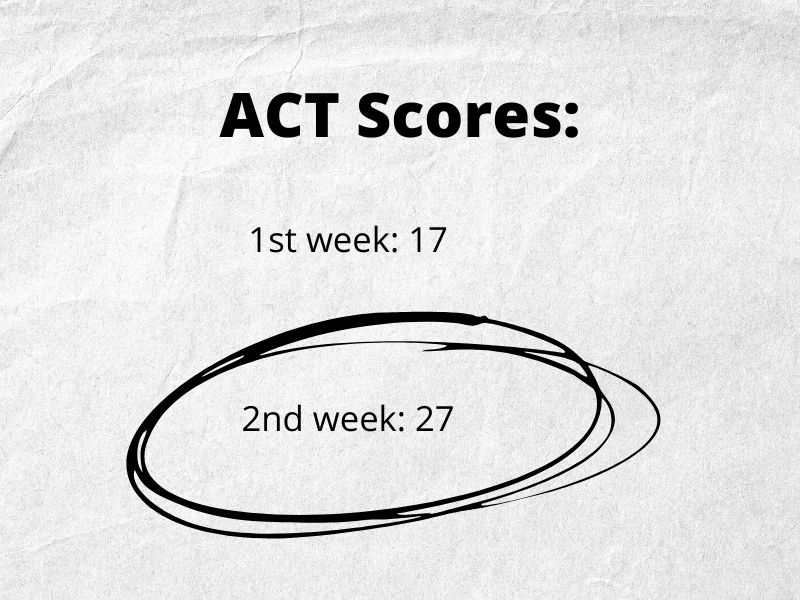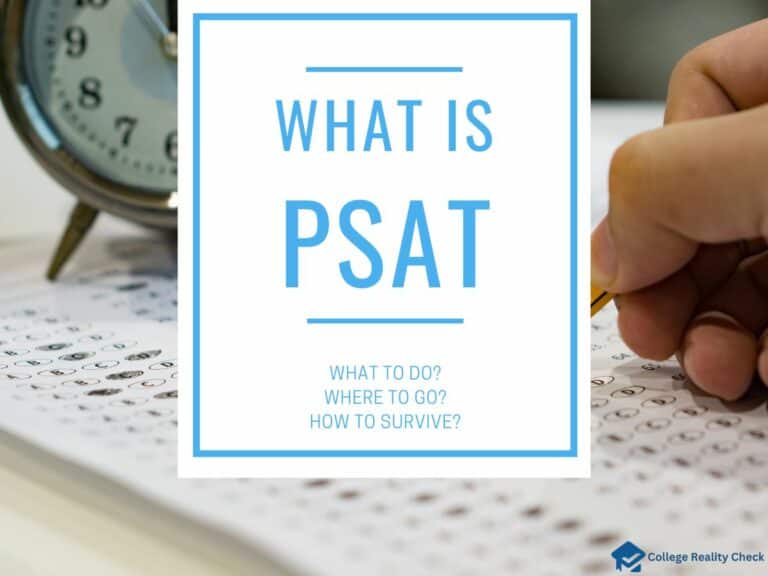How to Send SAT/ACT Scores for Free
Unless the college is test-optional or test-blind, one of the most important things a college-bound high schooler must do is send his or her standardized test scores. Did you know that you can send them at no cost?
To send test score reports to colleges and universities for free, students must indicate up to 4 institutions when registering for the SAT or ACT. The College Board or the ACT will automatically send their test scores to selected schools once available. Additional requests usually come with a fee.
However, it’s not always a good idea to agree to send the scores before taking the test, because lower than expected results can negatively affect your chances to be admitted to your dream school.
Below, I will discuss when and how to send SAT/ACT scores and how to save money, so read on.

How Do You Send Your SAT Scores to Colleges for Free?
From the date of registration for the SAT up until 9 days after the SAT test date, the test taker may choose to send 4 free score reports to 4 colleges and universities of his or her liking at any given time. After the 9-day window has passed, the student will have to pay a fee for sending a score report.
It’s not all the time that you will have to shell out money each time you send your SAT score to a school.
When you register for the SAT, you are automatically given the opportunity to pick up to 4 institutions to which 4 of your score reports will be sent at absolutely no cost.
There’s no need to be in a hurry, though. It’s for the fact that the College Board will give you up to 9 days from your SAT test date to decide where you want those free test score reports to go. So, in other words, you don’t have to worry because you have plenty of time to finalize your college list.
As mentioned earlier, you will have to pay a fee if you want to send a score report to a college or university 9 days after your SAT test date, unless you are eligible for an SAT fee waiver.
How Much Does It Cost to Send Additional SAT Score Reports?
After the 9-day period from one’s SAT test date, sending score reports to colleges and universities no longer comes free of charge. For each additional score report, the student will have to pay $12. A rush SAT score report order, which sends the score to the school within 2 to 4 business days, costs at least $31.
Not all college-bound teens intend to apply to only 4 institutions that require SAT scores. If you need to send additional score reports to other schools, you simply have to request for them.
Unfortunately, unlike those free 4 score reports that you can send to 4 colleges and universities upon registration for the SAT, additional score report requests come with a price — each one costs $12. But if you are eligible for an SAT fee waiver, you need not worry about paying that amount.
What’s really nice about being eligible for an SAT fee waiver is that you can request to send an unlimited number of score reports to schools. It’s a different story when it comes to the ACT, which we will discuss in a few — so read on!
Just added an institution to your college list and you need to send your SAT score to it ASAP?
Worry not because all you have to do to file a request for an SAT rush order. As the name says, it will send your SAT score to the school of your choosing in just 2 to 4 business days instead of the usual 1 to 2 weeks. But, needless to say, an SAT rush order comes with a steeper price tag — it costs $31 plus any additional fees.

How Do You Send Your ACT Scores to Colleges for Free?
When registering for the ACT, the test taker may choose up to 4 colleges and universities to which his or her ACT scores, once already available, will be sent. While the score reports can be sent at any given time once the ACT scores are released, a student can only choose up to 4 institutions once during registration.
There’s one very important thing to keep in mind when planning on taking advantage of free ACT score reports: you should have an idea of the schools where you want to send your ACT scores upon registering.
It’s because you can select them only at the moment that you register for the ACT.
Just in case you need to send your ACT scores to colleges or universities that you did not indicate when registering for the standardized test, you will have to pay for each additional score report. The only time you can be pardoned from shelling out cash for a test score request is if you are eligible for an ACT fee waiver.
So, before you register for the ACT, it’s a good idea for you to be certain which test-required institutions you want to send your ACT score reports free of charge as you are given only one chance to make a selection.
How Much Does It Cost to Send Additional ACT Score Reports?
Beyond the 4 free score reports to schools test takers indicate when registering for the ACT, additional score report requests cost $18 each, unless if eligible for an ACT fee waiver. Requests for ACT scores from test dates before September 1, 2020 are subject to an additional $30 archive fee, which applies per order.
Depending on the student’s educational profile and application, applying to 5 to 8 colleges is usually enough to make sure that a graduating high schooler will receive at least one acceptance letter.
To save on college application costs, no more than 4 of those schools should require ACT scores.
Worry not if your college list is packed with schools that require applicants to send their ACT scores. That’s because you can always request additional score reports from the ACT itself. However, they will not come free of charge, unlike the maximum of 4 free score reports you can enjoy when registering for the standardized test.
As mentioned earlier, each additional score report costs $18. The only time you will not have to spend money when sending further ACT scores is if you are eligible for an ACT fee waiver. But do keep in mind that you can send only up to 20 ACT scores to colleges and universities for free — further requests will not be covered by the ACT fee waiver.

Should You Send SAT or ACT Scores to Colleges for Free?
Before students decide to indicate up to 4 colleges and universities to which their SAT or ACT score reports will be sent once available, they should first determine whether or not their test scores can harm their application. It’s a good idea to send them, however, to schools that superscore SAT or ACT scores.
While free SAT or ACT score reports can help reduce college application costs, they can sometimes spell the difference between getting an acceptance letter and receiving a rejection letter.
Considering your initial standardized test as some sort of practice test to see how you will fare?
Then it’s a good idea not to send any of those free score reports to any of the schools of your choosing. That’s because the College Board or the ACT will automatically send your scores to them even if they are not so stellar! Especially if a college has a test-optional policy, sending low SAT or ACT scores to it can do more harm than good.
However, it’s a different story if the institution specifically says that applicants should submit all their standardized test records because they superscore them, which means that they only consider one’s highest test scores.
But it doesn’t necessarily mean that they will not take a peek at very low ones.
Read more about when it makes sense to send the test results to test-optional schools in this article.
Related Questions
How do you know if you are eligible for the SAT or ACT fee waiver?
Students who are interested in applying for the SAT or ACT fee waiver should consult their respective high school counselors. The SAT and ACT share some eligibility requirements, including the family’s total annual income being at or below levels set by the USDA.
Is submitting a low test score better than submitting none?
It’s best for students with strong applications who are applying to selective test-optional colleges but with low SAT or ACT scores to not submit their standardized test scores. Provided that the school is test-optional, it will not disadvantage them in the admissions process.
Disclaimer: The views and opinions expressed in this article are those of the authors and do not necessarily represent those of the College Reality Check.





